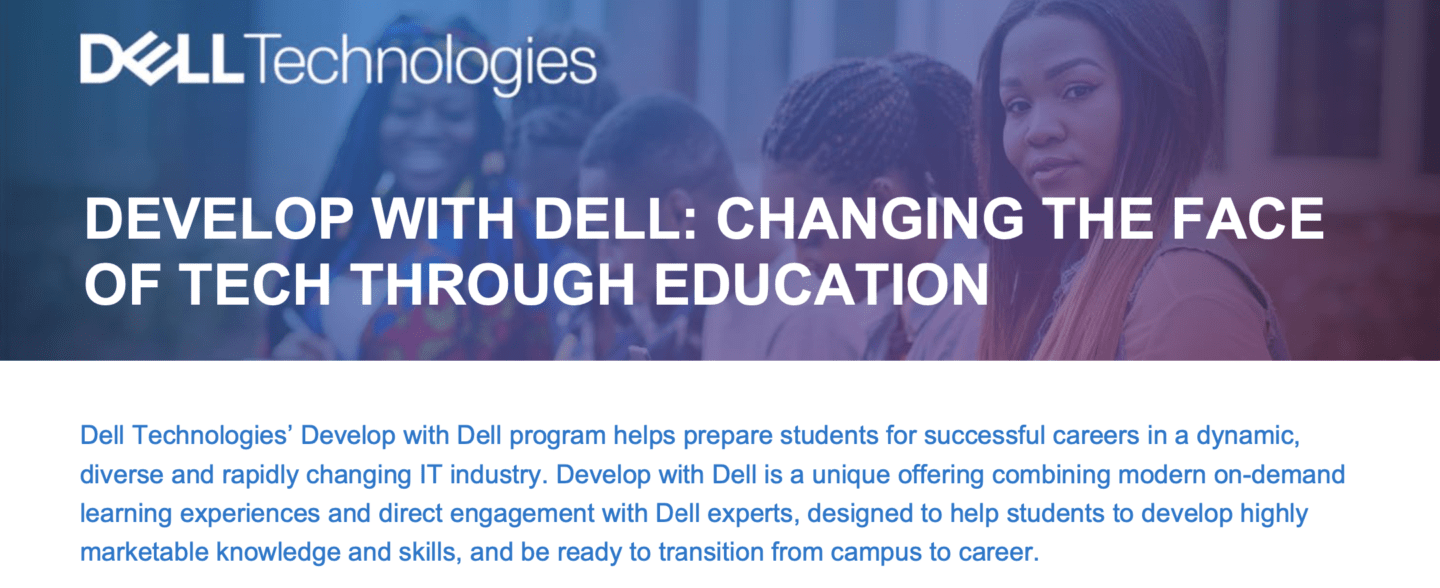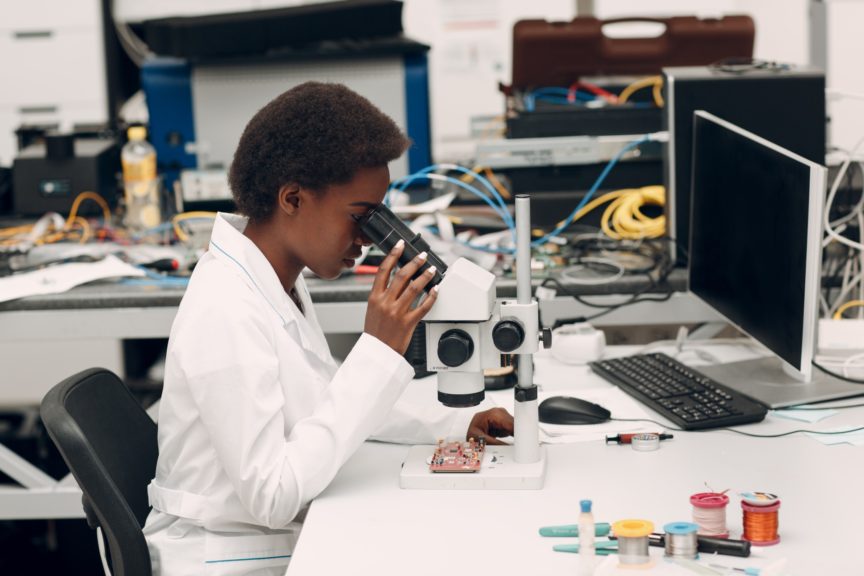Dell Technologies is working to promote equality and equity in the workforce. To do so, Dell is pledging that at least 50% of participants in its social and educational initiatives will be women or people from underrepresented groups.
Dell has already seen success with this goal in China from its collaboration with the Chinese Women’s Development Foundation. Since 2016, Dell Technologies has provided support for women at Chinese universities majoring in information and communication technology subjects. It has offered classes, workshops, and seminars to help women thrive in the tech industry.
“To align with our goals of increasing the number of women and underrepresented groups within the Dell Technologies workforce, we want at least half of the participants in our social and educational initiatives to be from those same groups.”
You can read more about Dell’s work here.

